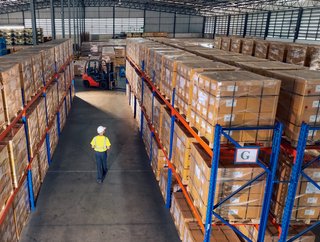Resilience Spending 'Will Fall' - S&P supply chain analyst

A leading supply chain analyst says that, although supply chains need to be more resilient, there is doubt over whether organisations are willing to invest in achieving this goal.
Chris Rogers is Head of Supply Chain Research at research and analysis firm S&P Global Market Intelligence.
Writing for the Council of Supply Chain Management Professionals (CSCMP) magazine, Supply Chain Quarterly, Rogers points to data that indicates profits for manufacturers globally are being squeezed.
Rogers predicts companies are likely to prioritise investing in capital stock – the value of a company's shares held by outside investors – over spending on supply chains.
“Gross operating profit margins for manufacturers globally are expected to fall to 10.4% of sales in 2024, down from 10.7% in 2022,” he points out.
He adds that the decline is expected to hit the computing and electronics sector, and domestic appliance manufacturing, the hardest.
Rogers says that a disruption-thwarting tactic commonly used by companies during the pandemic was to keep inventory levels high.
But he says that with interest rates so high, such an approach is unlikely to be attractive.
“The drawback is that every dollar in the warehouse is a dollar not paying off debt, increasing the dividend, or being invested in growth opportunities,” he says.
Rogers references data from the S&P Global Purchasing Managers’ Index, that suggest inventory stocks for finished manufacturing goods fell for eight of the first nine months of 2023.
Supplier diversification efforts 'backsliding'
Rogers says a further example of reluctance to spend on supply chain resilience is the “apparent backsliding in supplier diversification efforts”.
He adds: “While supplier diversification can reduce the inherent risk of a supply chain, it can come in and out of fashion depending on the need He observes that, in the US from 2019-21, many industrial companies used more suppliers as a way to deal with the increase in pandemic-related supply chain disruptions.
But he says that trend started to reverse in 2022 “as the number of suppliers fell below pre-pandemic levels in the 12 months through September 2023”.
He adds: ““There are a few sectors, such as auto and electronics, that have bucked this trend but in general we expect to see less supplier diversification in 2024, as companies push more orders to fewer suppliers in order to get better prices.”
Rogers continues: “In the absence of significant funds to spend on inventory increases or supplier diversification firms may look to technological and organisational fixes to provide a degree of resilience at a lower up-front investment cost.
“For example, AI could provide predictive probabilities of future disruptions, and may also be able to shorten recovery times by indicating where there should be inventory redundancies based on historical data.” he adds other uses include “assisting with scenario planning operations and providing optimal distribution routes and alternates based on past and real-time asset data”.
About the CSCMP
The CSCMP is the pre-eminent worldwide professional association dedicated to supply chain management research and knowledge. With CSCMP 9,000 members worldwide from industry sectors, government, and academia.
Check out the latest edition of Supply Chain Digital and also sign up to our global conference series: Procurement & Supply Chain 2024
******
Supply Chain Digital is a BizClik brand






